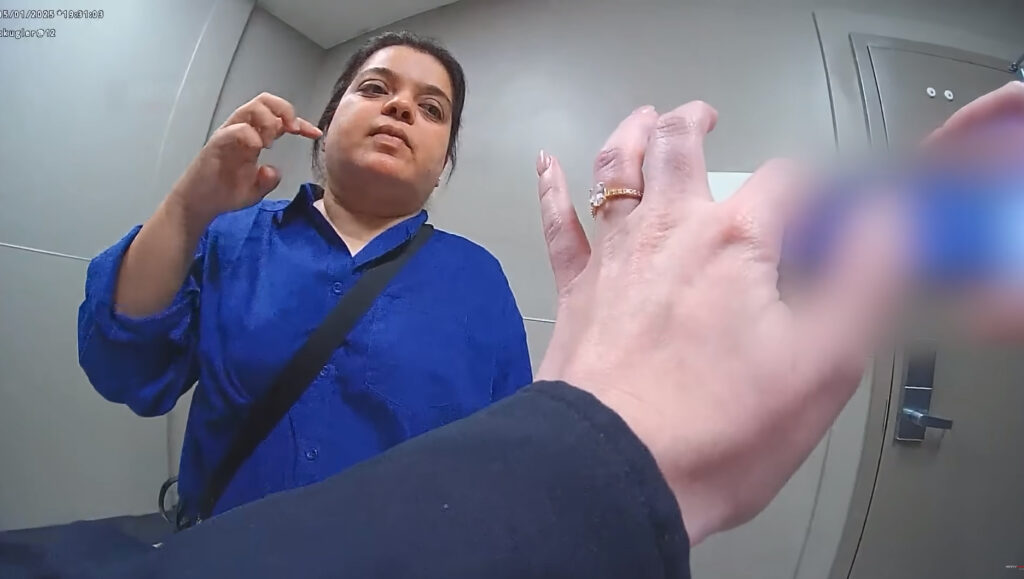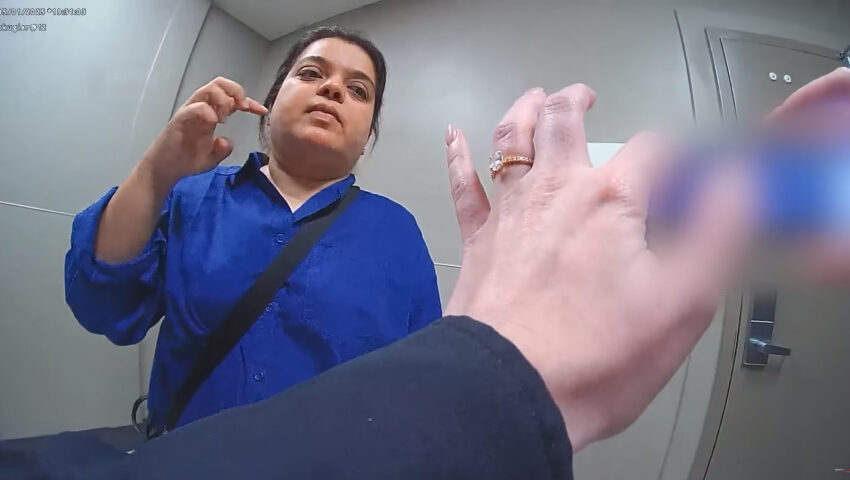
CHICAGO, IL – A recent incident involving the arrest of an Indian national at a Target store in Schaumburg, Illinois, has sparked significant online discourse, prompting discussions about retail theft laws, cross-cultural misunderstandings, and the vulnerability of international visitors within the U.S. legal framework.
The episode, captured on police body-worn camera and now widely circulated on platforms such as YouTube and TikTok, features Jimisha Avlani, a 34-year-old marketing professional from Mumbai, visibly distraught as she is confronted by law enforcement officers. In the footage, Avlani can be heard asking, “Why can’t I just pay for it?” To which an officer responds, “We’re past that. You committed a felony.”
According to the Schaumburg Police Department, the arrest took place on May 1, following an extended visit by Avlani to a local Target store. Store security personnel reported observing behavior they deemed suspicious—such as the selection of high-value goods, frequent use of her phone, and movement between departments—before she ultimately attempted to exit the premises without paying.
Authorities allege that the total value of the unpaid merchandise exceeded $1,300, a sum that qualifies the incident as felony retail theft under Illinois law, which sets the felony threshold at $300. Items reportedly included electronics, cosmetics, and name-brand clothing, which Avlani allegedly stated were intended as gifts and keepsakes.
Surveillance footage reportedly shows Avlani leaving the store with a cart full of merchandise before being stopped by security staff. Police arrived shortly thereafter, and the situation escalated to an arrest on the scene.
Avlani had recently arrived in the United States to visit relatives in the Chicago suburbs. Her arrest has generated mixed reactions, particularly among members of the South Asian diaspora. While some commentators on social media have expressed concern over the potential for cultural miscommunication and legal unfamiliarity, others have firmly rejected such arguments, emphasizing personal accountability and warning against damage to community reputation.
“People work hard here to build a reputation,” read one widely circulated comment. “You don’t get to steal and then act confused.” Other users criticized Avlani’s perceived attempt to resolve the matter post-factum, with some accusing her of trying to offer payment to the officers. Still others drew more critical cultural comparisons, warning against importing certain behaviors into American society.
For many observers, the video serves as a stark reminder of the consequences of legal violations, particularly for non-citizens. Experts have noted that felony charges—regardless of intent or outcome—can lead to severe immigration repercussions, including visa revocation and permanent inadmissibility to the United States.
In a formal statement, the Schaumburg Police Department confirmed that the arrest followed established protocol: “Officers responded to a call from store security. Due to the value of the merchandise and the circumstances surrounding the incident, charges were filed accordingly.” Avlani was subsequently released on bond.
The case continues to attract public attention, both as a cautionary tale and as a lens through which to examine the intersection of law enforcement, immigration policy, and multicultural tensions in a globally connected world.



